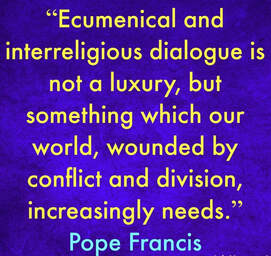 an introductory reflection offered to a recent NSW Ecumenical Council discussion by Josephine Inkpin Firstly let me acknowledge country – in particular the land of the Gadigal people of the Eora nation on which I live: their elders past, present and emerging. I also acknowledge all First Nations people here. I do so as right and proper. I also do so as this immediately focuses our discussions. For I live in a suburb (Forest Lodge) named after the house of Ambrose Foss, one of Pitt Street Uniting Church’s distinguished early founders. Next door is the suburb of Glebe: a name also witnessing to Christianity’s role in the dispossession of First Nations peoples. Such naming highlights how so many of our conventional expectations and faith stories are tied up with power. This lies at the heart of many divisions, embedded in our ways of thinking and being. Thanks be for God’s grace, these things are not intractable. Yet, without at least naming them, we will not go far in addressing the polarisation they help cause...
0 Comments
I am delighted by friends and colleagues who have been working on a project for May-June 2021 entilted From Biscuits to Bishop: Changing women, changing church - A celebration of Anglican women’s history in Brisbane Diocese. From Biscuits to Bishop is a multimedia exhibition celebrating Anglican women . The digital exhibition, to be launched in mid-2021, will be complemented by a display of objects and memorabilia in St John’s Cathedral Brisbane...
Above is a prayer I have written to mark the annual Coming of the Light festival (1 July) and for use of other occasions. It is shaped with thanks to Torres Strait Islanders with whom I have walked/continue to walk, with appreciation of their deep faith, spirituality and commitment to justice and diversity. Living strongly in my heart is also the visit, with NSW Ecumenical Council friends, which I paid several years ago to the Torres Strait. Torres Strait Islanders are often little known to many Australians, never mind the rest of the world, and literally and metaphorically missed off maps of the nation. Yet their history, culture and life today are rich and life-giving. They also continue to challenge us all to face up to the continuing effects of colonialism, injustice and climate change (which impacts on the Torres Strait so strongly). I am particularly grateful to walk paths of just Reconciliation with Aunty Rose Elu and the non-geographical Anglican Torres Strait Islander parish in Brisbane. May this year's Coming of the Light further enrich the people of the Torres Strait and deepen our solidarity.
Among other things, the killing of George Floyd in the USA has raised big issues about racism, in Australia as well as the USA, and elsewhere. Here are just three reflections by Aboriginal Christian leaders which raise the profound challenges to those of us who are white and continue to benefit from the systemic violence of our society. At the end of this Reconciliation Week they are particularly important to hear, and act upon...
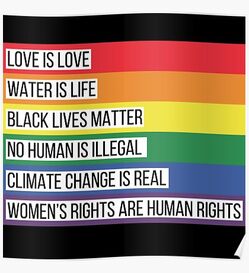 One of the reasons I was happy to be part of the trans faith film Faithfully Me (premiered tonight) was film maker Rachel Lane's track record of assisting in sharing the voices of other typically marginalised groups, not least Aboriginal ones. For one of the challenging invitations of our time is nurturing intersectional relationships which enable justice and fullness of life for all - for too many, otherwise very necessary, 'identity' struggles are weakened by restricted commitments and groups which tend only to include their own kind. Over the years, many Aboriginal & Torres Strait Islander leaders have pointed me to a better way, supporting the needs and hopes of others even, at a cost, when their own are so outstanding. We 'progressive' white folk haven't always reciprocated well. Here, below, is a little excerpt from Secret & Sacred, an example of Rachel's earlier work, a glimpse of the deep wisdom of the Badjatala people (whitefella Hervey Bay & Fraser (K'Gari) Island region), but a snippet of the neglected ancient but very much living wisdom of this land. With particular thanks to Glenn Loughrey and Dianne Langham, Canon Bruce Boase, and Aunty Rose Elu for their continuing personal inspiration to me in sharing solidarity - and to other friends, like Tony Robertson and Johnny Valkyrie, who respond so beautifully and model how the liberation of any of us is entwined with the liberation of us all. This is so absolutely contrary to today's right-wing 'religious freedom' push, and central to authentic catholic faith, as so powerfully expressed in John Donne's Meditation 17: for the bells which toll, toll for us all. The chimes of freedom - human rights and flourishing - are indivisible - so let's ring out our different bells in a harmony of joy :-) 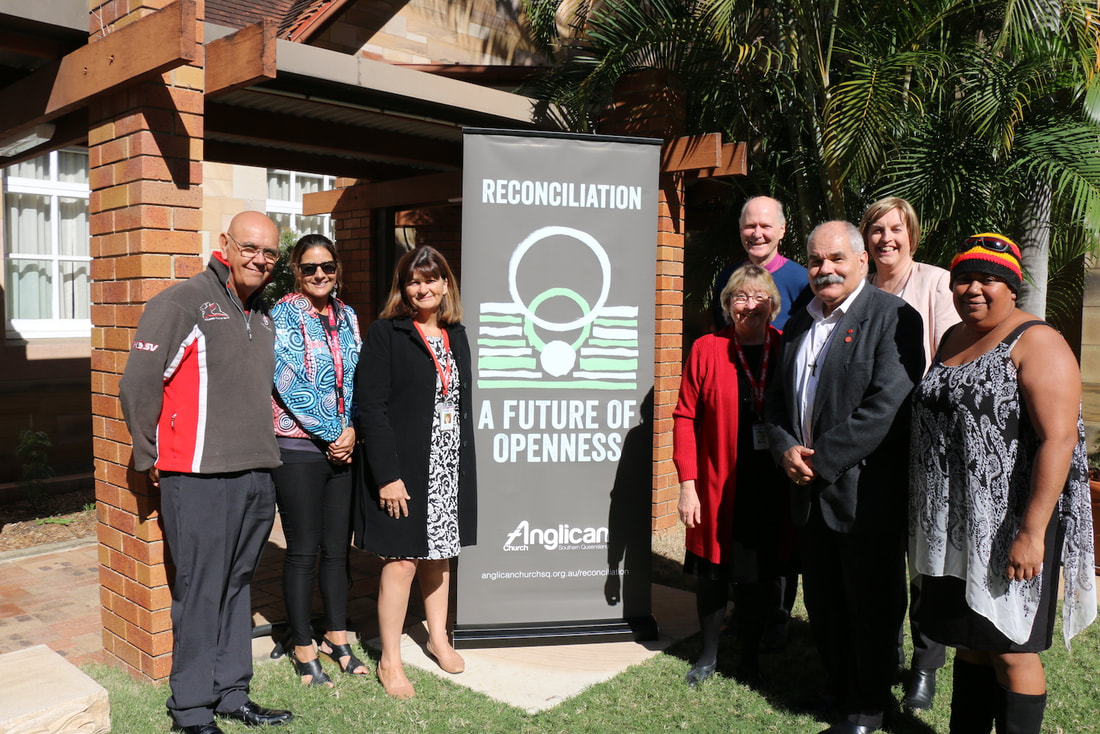 representatives of different parts of the ACSQ family at the keynote recent diocesan RAP gathering in Reconciliation Week 2018 representatives of different parts of the ACSQ family at the keynote recent diocesan RAP gathering in Reconciliation Week 2018 One more step along the road we go. For it is 6 years, almost to the day, since I successfully proposed a diocesan Synod motion for the Anglican Church Southern Queensland to explore a Reconciliation Action Plan (RAP), inspired by the work done by the Toowoomba Catholic diocese. I was reminded of this this afternoon as I took part in filming Reconciliation stories with Anglicare Southern Queensland and other diocesan colleagues as part of a new and developing Anglicare Reconciliation project. It has certainly been a sometimes frustrating, but also, above all, deeply enriching journey for me personally. For - from Cunnamulla to Buderim, through Toowoomba, the Gold Coast, and Brisbane - I have walked, yarned and worked with all kinds of people, from all kinds of different spaces and with all kinds of different stories. So it was lovely to share today in bringing some of this together, in immediate advance of NAIDOC Week, in order to enable fresh steps ahead with many more people. The RAP, is, and always was and will be, an ambitious project - seeking to work together over such a large and diverse area, with all sections of the diocesan family - and there is so much more to do, but today was an example of how rewarding this can be. 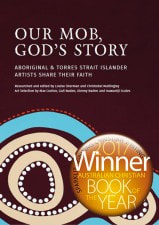 This year is the bicentenary of the Bible Society in Australia and it was wonderful to be given a lovely gift by one of our students which marks the occasion - Our mob, God's story : Aboriginal and Torres Strait Islander artists share their faith. (researched and edited by Louise Sherman and Christobel Mattingley ; art selection by Max Conlon, Gail Naden, Glenny Naden and Inawantji Scales ; with foreword by distinguished Aboriginal artist and educator Miriam-Rose Ungunmerr Baumann) Winner of the 2017 Australian Christian Book of the Year, Our Mob, God’s Story features the work of 66 Aboriginal and Torres Strait Islander Christian artists, well-known and unknown, from communities, towns and cities across Australia, from Tasmania to the Tiwi Islands, from Ceduna to Cairns, form Perth to Wonthaggi, sharing their faith in 115 paintings inspired by Bible verses and stories, many well loved, others not so well known, from Creation to the Crucifixion. All artists have generously given free use of their images, but retain copyright. It is a powerful and beautiful witness to God’s love for the traditional custodians of this ancient continent which we now call Australia, and to the talent of Aboriginal and Torres Strait Islander artists. Publication has been funded by a generous donor and all proceeds will go towards publication of Scripture in mother tongues of Aboriginal and Torres Strait Islander groups. 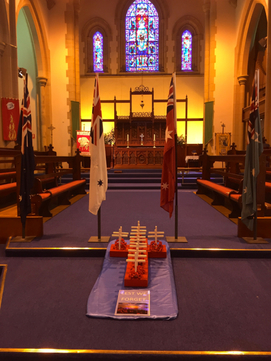 At the risk of sounding like The Big Bang Theory's Dr Sheldon Cooper, we have been having some appropriate 'fun with flags' at St Luke's Toowoomba over the last few days, as we have sought to honour the tragedy and courage of our broken Australian and international histories. Firstly we held our annual Remembrance Service, remembering the fallen and damaged of the great wars and conflicts in which Australians have been engaged, as well as praying for peace across the world. This involved armed services representatives, our mayor and local MPs, retired services organisations, Harlaxton RSL band, serving army chaplain the Revd David Snape, a fine sermon from the Revd Penny Jones, and display of the three services ensigns and main Australian flag. The collection from the service also once again went towards the maintenance of the Warriors Chapel in St Luke's, a space for our city which honours the fallen and damaged of various conflicts (including those of the world wars, Korea, and Vietnam) and which holds a number of banners from former times. 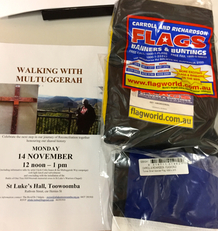 A new step this year however will be the addition to the Warriors Chapel of Aboriginal and Torres Strait Islander flags. These will be installed next Monday, 14 November, alongside a beautiful memorial cross to remember the Battle of One Tree Hill, one of the most significant local conflicts in the European invasion and settlement of the Toowoomba region. This is part of our Reconciliation journey together as we learn more about our shared histories and walk more closely together for healing and a better world. The Aboriginal and Torres Strait island flags are recognised national flags of Australia and are available free from MPs offices to recognised bodies. It was a delight therefore to receive these for St Luke's yesterday from the office of the Hon John McVeigh. We pray together that all the flags we will hold at St Luke's will bring renewed honour and dignity to all they represent. I did have a little wry chuckle yesterday however as I received the Aboriginal & Torres Strait Island flags. They, like all our flags, are deeply sacramental of identity, visibility, connection and life. Yet in another sense, they can also be aspects of our human capacity for pompousness and far worse, if they are not regarded properly with humility and care for all. For, as Eddie Izzard put it memorably, especially for those of us with British backgrounds, flags are also very curious constructions... 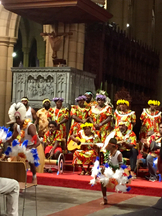 It was a huge delight to be part of the launch of the Reconciliation Action Plan of the Anglican Church Southern Queensland (diocese of Brisbane) in St John's Cathedral Brisbane last Thursday. Together with a Welcome to Country, didgeridoo music, food, and audio-visual display of Reconciliation activities across the diocese, a particular highlight was also the performance of the Malu Kiai Mura Baui dance troupe and speeches from Archbishop Phillip Aspinall and our National Aboriginal & Torres Strait Islander Anglican Council diocesan leaders Canon Bruce Boase and Aunty Rose Elu. Almost 200 people attended the event, including the most prominent lay and ordained Anglican leaders in the diocese, local elders and representatives of leading organisations such as Reconciliation Queensland.  The RAP Launch was the culmination of four years work of awareness and relationship building across the diocese and represents a significant step forward. Indeed the ACSQ RAP is highly unusual for the sheer scale of its geographical and organisational extent, covering both such a large area of Australia with so many different Aboriginal & Torres Strait Islander peoples and involving every section of the diocese, including finance and service departments, as well as parishes, schools, St Francis College and Anglicare. May God bless all involved in making this next stage of shared commitment real in the days ahead. 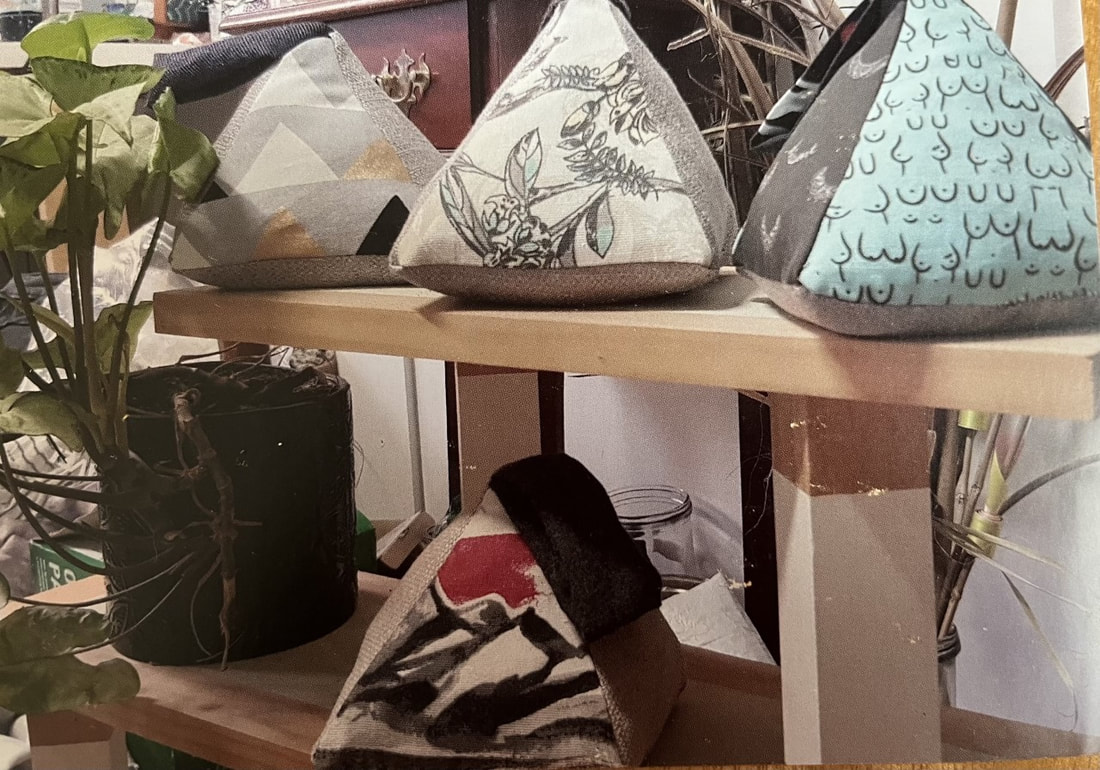 Whilst the statistics and reality of many women's lives continue to highlight the pressing need for feminist change, the plight of many men is also often hidden. In addition to the terrible effects of abuse, male survivors also face particular male issues of shame and humiliation. This is further heightened by cultural issues among some communities. How good then to hear of projects like Living Well in Brisbane. One recent initiative, launched during NAIDOC Week, is a video entitled 'No More Silence: Healing from Sexual Abuse'. This aims 'to start a conversation about community' and involves members talking and working together to raise awareness, to offer support, encouragement and hope to Aboriginal and Torres Strait Islander men who have been sexually abused in childhood.' Check out the resources available on the website and watch the video below... |
AuthorJo Inkpin is an Anglican priest serving as Minister of Pitt St Uniting Church in Sydney, a trans woman, theologian & justice activist. These are some of my reflections on life, spirit, and the search for peace, justice & sustainable creation. Archives
July 2024
Categories
All
|
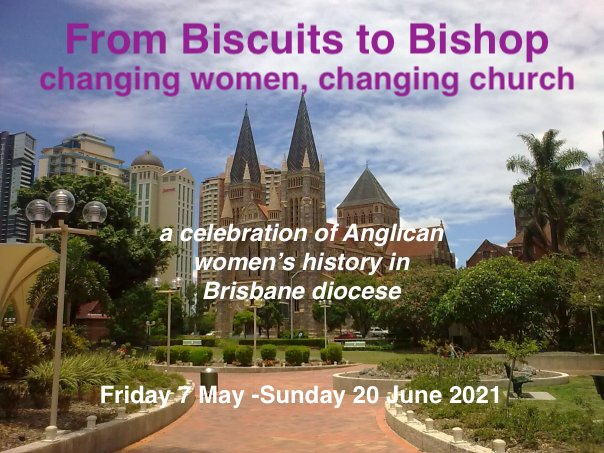
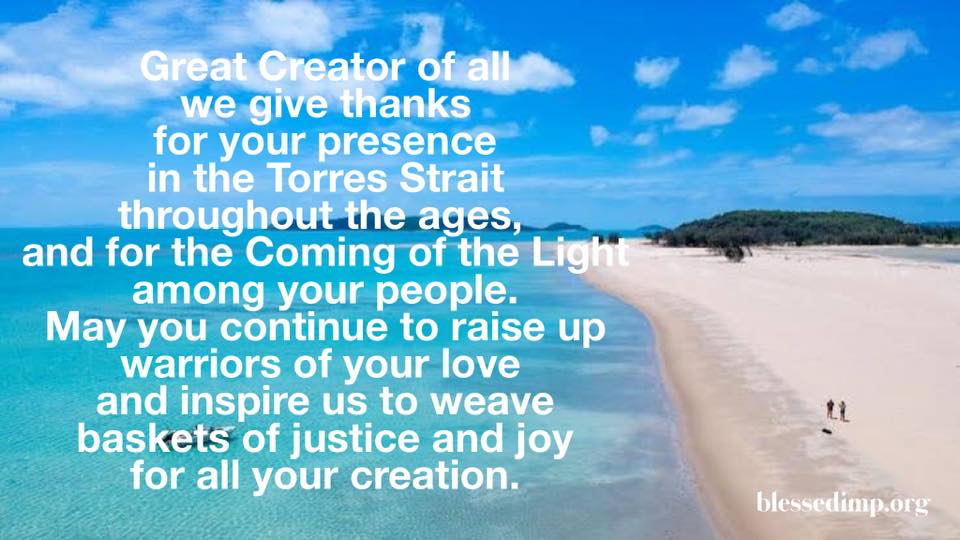
 RSS Feed
RSS Feed